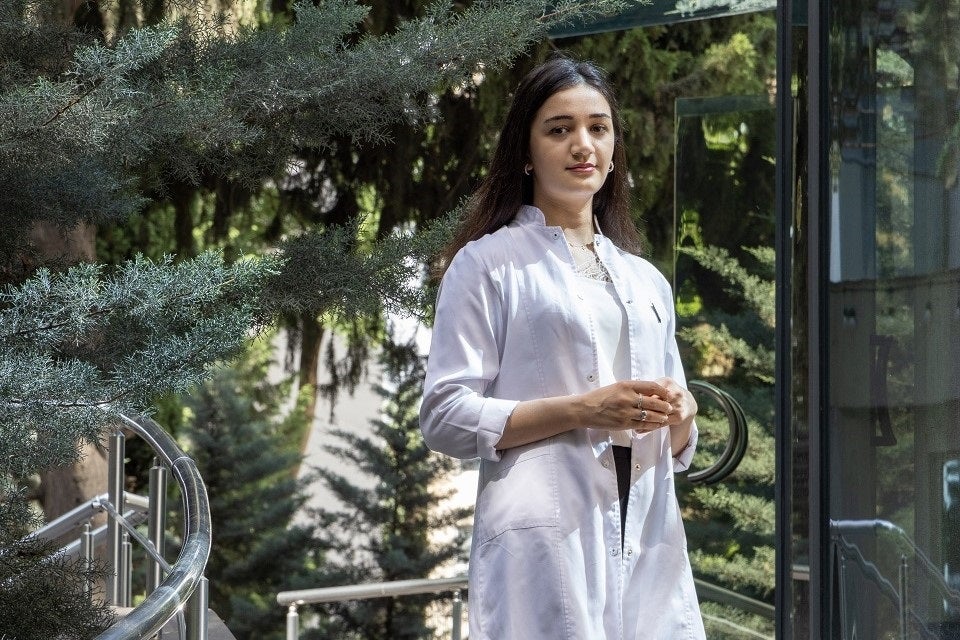From where I stand: “Access to health cannot be achieved without the participation of women”
Aisel Ajalieva, 23, is a student of the English-language school of medicine at Grigol Robakidze University and a resuscitation nurse at Tbilisi Central Hospital. Aisel is one of the women who took part in the project “17 Faces of Action” from Georgia.
Date:

“In 2020, when the COVID-19 pandemic began, the medical staff was at special risk: we didn’t know much about treatments for the disease, there was no vaccine, and the doctors, whose numbers did not meet the needs in the clinics anyway, often performed their professional duty at the cost of their own health.
At that time, I was already working as a nurse in the operating room of Tbilisi Central Hospital, but I realized that I had to move to the front line of the fight against COVID-19, in intensive care. Feeling that the country and people needed my help the most now, I ignored both the risk to my own health and the concerns of my family.
Like me, many women in Georgia and the world were fighting against COVID-19. The pandemic has highlighted the importance of junior medical staff—nurses and orderlies, the vast majority of whom are women. That is why it is necessary that their work and contribution be recognized and duly appreciated.
The most valuable thing for a person is health; it gives you motivation to live your life. You cannot take care of this greatest treasure without nurses and sanitary workers. Therefore, access to health cannot be achieved without the participation of women.”
The initiative “17 Faces of Action” serves to promote the contribution of women in the process of achieving the Sustainable Development Goals (SDGs). It is a project of the United Nations Office at Geneva and its representative, Director-General Tatiana Valovaya, as well as the Association of Swiss Women and Empowerment. In Georgia, the project was implemented in cooperation with the United Nations Country Team and with the technical support of UN Women. Aisel Ajalieva’s work makes a significant contribution to the achievement of SDG 3, which involves ensuring healthy lives and promoting well-being for people of all ages.